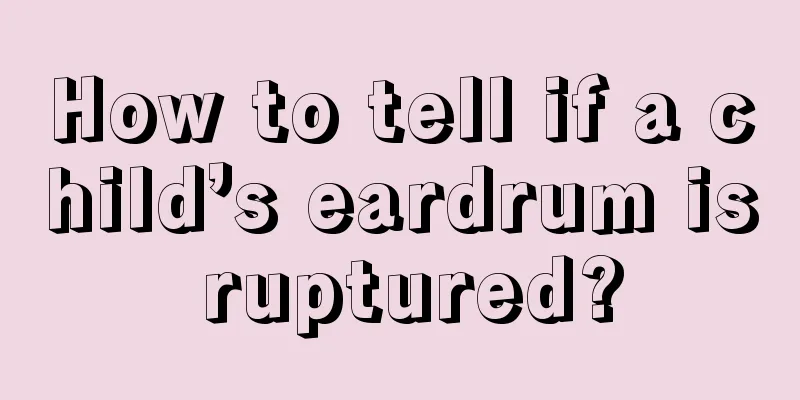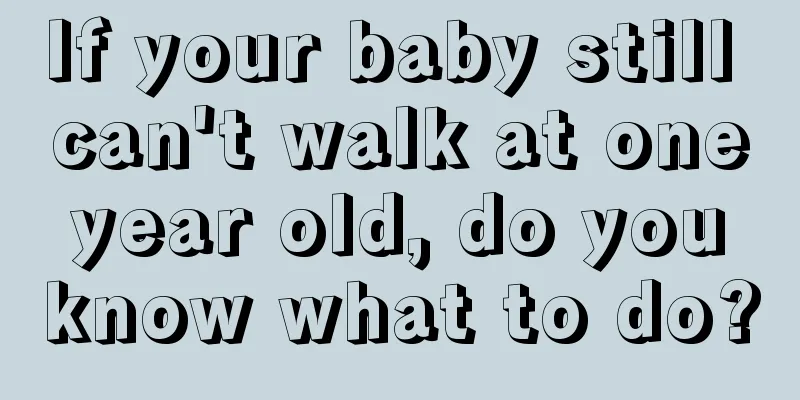What to do if your baby has otitis media

|
Otitis media is a common symptom in early childhood. It is usually a complication that occurs after a child catches a cold. It is generally divided into acute otitis media and chronic otitis media. If otitis media is not treated in time, it can cause hearing impairment and even hearing loss in severe cases. However, the treatment for infants and young children cannot be the same as that for adults. So, what should we do if our baby has otitis media? First, what should we do if our baby has otitis media? The inside of the baby's ear is not fully developed yet, which makes it easy for bacteria to invade. If the baby is malnourished, catches a cold, or suffers from nephritis, tuberculosis, or heart disease, it is easy to induce otitis media. . When the baby lies flat to feed, the milk can easily flow into the ears and induce otitis media. If the baby suffers from sepsis and septicemia, bacteria can easily invade the middle ear through the blood circulation and cause otitis media. The baby cries and is restless, refuses to feed, and sometimes there is redness and swelling behind the ears. The baby will cry loudly when the parents touch him. . It is common for babies to scratch their ears with their hands and be slow to respond to adults' calls or the sound of firecrackers, indicating that the baby may have hearing impairment. Unexplained fever, irritability, insomnia, etc. may all be caused by middle ear inflammation. Second, pay attention to supplementing your baby's nutrition, keeping him warm, and preventing him from catching a cold. When bathing or washing your baby's hair, you should block the opening of the external auditory canal with your hand to prevent dirty water from flowing into the ear canal. . Do not dig your baby's ears hard to prevent skin infection and bacterial invasion. Keep your baby's nasal cavity as clean as possible to prevent mucus accumulated in the nasal cavity from flowing into the Eustachian tube. Avoid letting your baby suck on a pacifier for long periods of time. Frequent sucking can easily cause bacteria to enter the Eustachian tube from the back of the nasal cavity and cause infection. What should we do if our baby has otitis media? Generally, we would drip medicine into the ear canal. This requires the baby's cooperation. For older babies, they need to be persuaded and educated to lie on their side in bed, or sit on a chair with their head tilted to one side. For smaller babies, their bodies and hands need to be fixed, and their heads should be fixed sideways. . Things to note when dripping medicine: Since the external auditory canal has a certain inclination, the baby's ear canal should be straightened before dripping the medicine to allow the medicine to flow in smoothly. In order to encourage the medicine to flow into the tympanic membrane area, you can gently press the tragus with your fingers after the medicine is dripped. |
<<: Is otitis media serious in children?
>>: What causes drool rash in children?
Recommend
How many months does a newborn need to add complementary food?
The birth of a new life brings joy to the family,...
How to correct baby's cross-eyes
Some parents will find that their babies have pro...
The harm of too long foreskin in boys
Many boys have the problem of foreskin being too ...
What are the causes of frequent urination in children?
Frequent urination is a very common condition in ...
How to treat red birthmarks on newborn hands
The red birthmark is actually the hemangioma that...
Which department should my child go to for headache?
Headache is a common phenomenon in normal times. ...
What to do if your child blushes when talking nervously
Many people have experienced blushing when they w...
What to do if your five-month-old baby has bad breath
The arrival of a child brings infinite joy to the...
Redness around the baby's eyes
Everyone knows that redness around the eyes of ba...
Symptoms and care of infantile rash
Early childhood emergency rash is a relatively co...
Can epilepsy in children be cured?
Epilepsy is a very common disease in daily life. ...
The newborn was hit on the head
Babies are bound to get bumps and bruises when th...
Is it normal to lose teeth at 6 years old?
Sometimes many people who are already 26 years ol...
What to do if something is stuck in your baby's throat
The baby's body is very fragile. When somethi...
The best period for baby's brain development
There is an optimal period for the development of...









